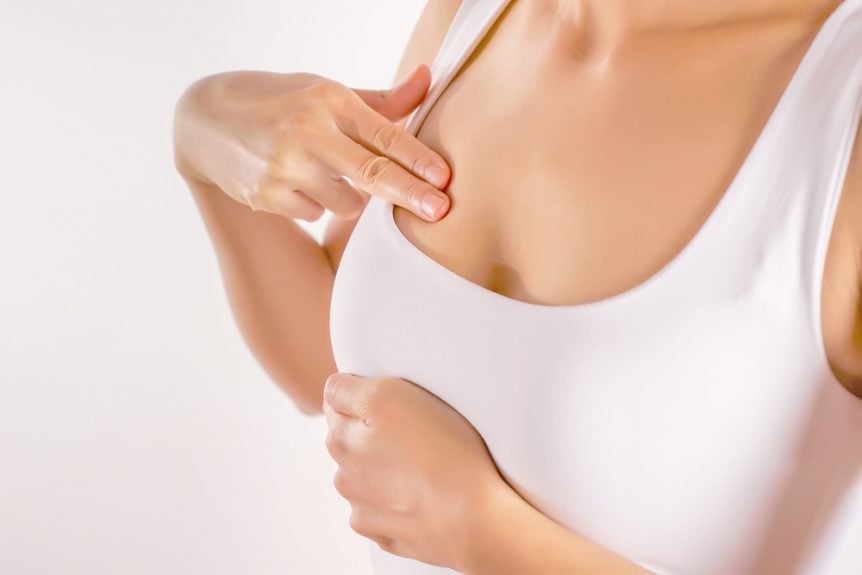
3 ways to strengthen bones and prevent osteoporosis
If you suffer from joint pain and stiff, aching joints, you’re not alone. Millions of people endure the skeletal disease known as osteoporosis. Osteoporosis takes over when your bones weaken, and/or little holes start to take shape in the bones. It happens to many of us as we age — especially women — and often results in bone fractures and chronic pain. The Dowager’s hump you see in so many elderly is the result of osteoporosis over the years.
While your bones and joints can start to deteriorate at any age — for both men and women — a woman over the age of 50 is at an increased risk for osteoporosis, while a man becomes more susceptible at age 70 and beyond. Other risk factors include a family history of osteoporosis, having a small frame, a sedentary lifestyle, smoking, low levels of vitamin D in the body, hormone imbalances, malnutrition, chronic stress and emotional imbalances, long-term use of steroids and anti-convulsants, and other medications that cause bone demineralization.
But, osteoporosis doesn’t have to be a natural part of the aging process. Our bone health is a dynamic thing — ever-changing with its environment. Here are 3 ways to strengthen bones and prevent osteoporosis:
Your diet can help prevent osteoporosis
What you put into your body over the years influences whether you’ll develop osteoporosis and to what degree. Your diet also affects the body’s ability to relieve osteoporosis symptoms when and if they do arise.
What to drink and what not to drink
You’ll want to minimize alcohol intake, as excessive drinking causes chronic inflammation in the body. It’s also a diuretic, and as such, drains calcium from your bones, making you more prone to bone fractures. What’s more, too much alcohol causes vitamin D and magnesium deficiencies, two of the most essential minerals for bone health.
Drink lots of spring water instead. Mountain spring water, also known as living water, detoxifies your body while relieving joint and muscle pain. It also helps your digestion and absorption of nutrients. If you drink soda, work towards cutting it out of your diet entirely, as sugar-laden drinks leach calcium from your bones and also heighten inflammation in the body.
Then there’s the coffee conundrum. Is it good for the bones? Research varies, but the main consensus says it’s best to consume caffeine in moderation. Drink coffee in the morning, and stick to herbal teas — warm or iced — in the afternoon.
What to eat and what not to eat
Fatty, wild-caught fish rich in omega-3 fats are always a good idea, while too much processed foods are not. Salmon, cod, trout, tuna, mackerel, herring, kippers, anchovies, catfish, sardines, and shrimp are all great examples of fatty fish high in omega-3s and low in mercury. Find a few you like and rotate them throughout the week.
As far as veggies go, fermented vegetables and sea vegetables foster strong bones and joints. Fermented veggies like sauerkraut and kimchee contain probiotics, which might help increase bone muscle density. Sea vegetables like nori, kombu, and wakame are ripe with minerals essential to bone health.
Green, leafy vegetables are high in vitamin K and calcium. These include bok choy, kale, spinach, collard greens, and broccoli. Eat several servings of veggies every day. All these foods are alkaline in nature, which helps prevent the acidic environment that osteoporosis thrives in.
Limit your consumption of acid-causing foods such as sugar, refined carbohydrates, processed meats, dairy products, alcohol, and caffeine. Too much acid causes the body to pull calcium from the bones, weakening them. Ideally, you want your body’s pH to be slightly alkaline.
Getting good sleep is essential
Sleep (or lack thereof) affects everything — body, mind, and emotions. When you get consistent, restorative rest, it helps detoxify and restore the body on all levels. Your body may be still and restful on the surface during sleep, but internally, there’s a whole host of activities taking place — activities that repair and renew the body and mind. A good night of sleep also repairs and regenerates cells, builds your immune system, balances hormones, gets rid of stress, and reduces risk for osteoporosis.
In fact, a 2015 study that explored the link between lack of sleep and osteoporosis found that men and women over the age of 50 who slept for less that 6 hours each night over a long period of time had a significant increase in osteoporosis risk. In other words, adequate sleep is essential for our bone and joint health. It’s essential for pretty much everything health-related.
The average adult needs 7-8 hours of quality sleep each night. If lack of sleep has become an issue, as it often does as we age — given menopause and the many changes that come with mid-life and beyond — do your best to improve your sleep hygiene.
Weight-bearing exercises are key
Leading a sedentary lifestyle is a recipe for bone and muscle loss, whereas an active lifestyle builds strong and healthy bones and muscles. It also makes you less at risk for injuring yourself when you have an accident. This is where a routine of regular weight-bearing exercise comes in.
You should practice weight-bearing exercise about three times a week, for 20-30 minutes each time. There are many ways to do this, so don’t feel like you’re limited to the typical activities such as walking, jogging, calisthenics, and weight training. Mix it up! Change your routine so that you remain interested and engaged. If jogging isn’t your thing, no worries. But, do walk often and try to lift weights a couple times a week. Weight-bearing exercise routines are essential for the prevention of osteoporosis because they stress the bones in a good way, helping you maintain bone density as you age.
All of the following activities are weight-bearing exercises:
- Walking
- Jogging
- Dancing
- Calisthenics
- Pilates
- Yoga
- Weight training
- Golf
- Tai chi
- Zumba
- Aerobics
- Skiing
- Snowshoeing
- Hiking
- Jumping rope
- Gardening
- Rock climbing
As you can see, the key is to remain active — doing whatever it is you enjoy. Have fun finding new and different ways to protect your bones and joints. Osteoporosis and all the symptoms that come with it need not decrease your quality of life. Simply follow these tips and consult your physician for further guidance.
At OB/GYN Associates of Alabama, we use DXA scan equipment that offers very precise results and is the preferred test for diagnosing osteoporosis. Contact us to learn more or to schedule an appointment.


